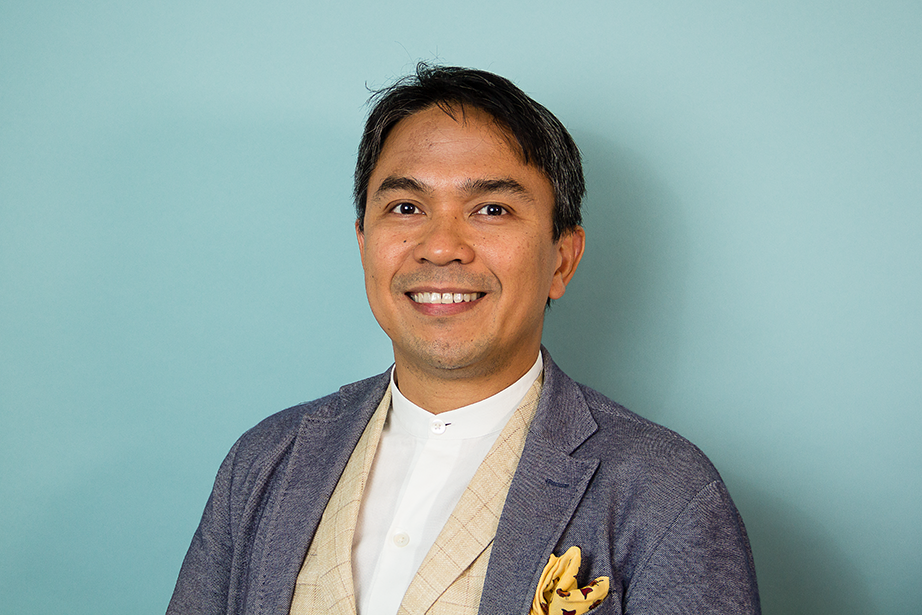Democracy and Peace – symbiotic and mutually reinforcing

Looking at the news around the world today, one cannot help but wonder if peace is being taken for granted? While some of us are fortunate to enjoy peaceful lives, others live in conflict zones where livelihoods are endangered and families are threatened. Like democracy, peace has to be nurtured, promoted and protected.
As we commemorate the International Day of Peace on 21 September, it is only apt to reflect on how our work and day-to-day activities help promote and sustain peace in our communities and beyond our respective countries’ borders. Just as International IDEA supports sustainable democracy worldwide, we also champion peace and conflict prevention.
The relationship between democracy and peace is perhaps one of the more researched topics in political science. Is democracy good for peace? Or is it peace that leads to democracy? One of the foremost theories on this is the Theory of Democratic Peace, originally conceived by Immanuel Kant. The theory suggests that the more democratic two regimes are, the less likely they will engage in conflict. Dan Reiter, in his article “Is Democracy a Cause of Peace”, looks more closely into this relationship by addressing critics of the theory who argue that the “observed correlation between democracy and peace does not mean that democracy causes peace”. Reiter concludes firstly, that there is enough evidence to show that democracy does cause peace at least between democracies and secondly, several factors (including democracy) cause peace and that the causality among the factors of democracy and peace is likely to be bidirectional.
The Theory of Democratic Peace when related to International IDEA’s Global State of Democracy publication, which put forward that from 1975-2015 democracy has advanced with most electoral democracies established during this period surviving, can help explain why there is more peace and lesser conflict. This is further qualified in Inclusive Peace – or not peace at all, which advances that within countries, inclusive governance and adherence to fundamental rights can help a great deal in overcoming challenges to peace and parting ways with a violent past.
This is also empirically supported by “Conflict Trends and Conflict Drivers: An Empirical Assessment of Historical Conflict Patterns and Future Conflict Projections” by Szayna, Thomas, et al., which highlights that overall levels of conflict have been declining in the past two decades. On the one hand, inter-state violence has decreased the most, both in incidence and intensity of armed conflict. On the other hand, while intra-state conflict and low intensity violence are declining, they are doing so in a slower pace.
International IDEA’s commitment to peace is clearly expressed in the video message from our Secretary-General. In the message, Yves Leterme also highlights the prominence of intra-state conflicts and puts forward pointers to help mitigate it.
To nurture and protect peace, International IDEA helps to enable and equip democratic actors and institutions with the knowledge, frameworks and tools for dialogue, engagement and peacebuilding. In Helmets are not enough: What West Africa today tells us about the realities of conflict prevention, we zero in on organized crime and how its corruptive influence can undermine democracy. One foremost lesson is that by identifying the areas that are most vulnerable to the influence of organized crime and political corruption, it is possible to prioritize conflict preventive actions that strengthen governance and democracy. The IntegriTAS Threat Assessment System can precisely help government and Civil Society do this. In Substate constitutions in Myanmar, we look closely at how sub-state constitutions can be used as an effective framework for sustainable peace in a country that is divided by ethnic and territorial conflict. Informed by the policy paper, Substate Constitutions in Fragile and Conflict-Affected Settings, International IDEA’s office in Myanmar hopes to help set the tone and establish a framework for constructive engagement for all stakeholders. In Planting elections in barren soil? Timing and sequencing of elections after violent conflict, we are presented the dilemmas that democracy support organizations face when invited to assist a country that has recently undergone a conflict. While it is clear that trusted and capable electoral management and electoral justice institutions are necessary for the conduct of peaceful and credible elections, how does one know that a post-conflict country is ready to take the next step by holding elections? Finally, in Enhancing the peacebuilding role of political parties and parliament in Haiti, we present our work on enhancing the role of democratic actors and institutions in addressing the political divide in order to shape and sustain a culture of accountability for the country. Other than just meeting the demands for integrity, accountability and responsiveness to democratic institutions, political parties and parliaments are ultimately expected to be a stronger bridge for political stability and peace.
We all have a role to play in promoting peace. As citizens, in nurturing our democracy, we also nurture our peace and that of our neighbours’.




